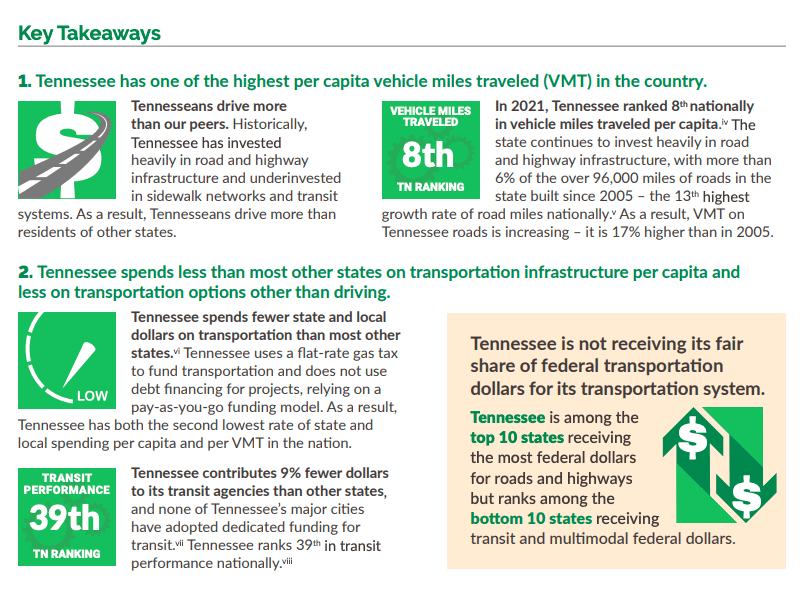
NASHVILLE, TN – Tennessee’s November 8, 2022 midterm election featured races for governor, U.S. House of Representatives, all 99 state House, and 17 state Senate offices. A new report by nonpartisan think tank ThinkTennessee provides key takeaways from the 2022 midterms and suggests four policy recommendations to improve voter engagement in future elections.
According to the report, voter turnout continued to trail most other states, with only 38.6% of registered voters showing up to cast ballots. Calls to the national election protection hotline reveal that some would-be Tennessee voters continue to miss out on casting a ballot due to lack of information or challenges with some voting requirements, like missing voter registration deadlines or going to the wrong polling location after being placed in a new district. Voter choice was also limited in the 2022 midterms. Few races were competitive – more than half (53.9%) of November’s state legislative races featured only one candidate, leaving voters with no meaningful “choice” in who their elected representative would be. As with past elections, the 2022 midterms were safely and securely administered across the state, yet some counties had challenges with placing voters in newly drawn districts following the most recent redistricting process.
“While most Tennessee voters did not report any issues casting a ballot on Election Day 2022, we continued to see some would-be voters fall through the cracks due to issues that Tennessee policymakers have the power to change, such as extending the voter registration deadline to allow voters more time to register,” said Erin Hafkenschiel, president of ThinkTennessee. “We look forward to working with our policymakers to continue to strengthen the election experience for Tennessee voters in 2024 and beyond.”
Drawing on data from three sources – Tennessee calls to the election protection hotline, information shared by county election administrators, and examples from other states – ThinkTennessee shares four recommendations for policymakers to consider ahead of our next election cycle that could help improve voter turnout.
Increase support for voter education efforts. Increasing support to expand election commissions’ capacity and encouraging partnerships with trusted local community leaders and members to help share information could help to reach more voters with key information.
Allow absentee ballots to be returned in person. Tennessee absentee voters can only return their absentee ballots by mail. All other states (except Mississippi) allow voters the additional option of returning an absentee ballot to either an election office or polling place.
Consider expanding Convenience Vote Centers as an option in more counties. Establishing a Vote Center model on Election Day could help reduce the number of voters turned away from casting a ballot because they show up at the wrong polling precinct.
Consider extending the voter-registration window. As we saw in 2020, would-be Tennessee voters were unable to cast ballots because they missed the voter-registration window. Tennesseans are missing the opportunity to participate in elections because they act too late and are either not registered or their registration is not updated due to a recent move.
The complete Election 2022 After Action report can be found here.




